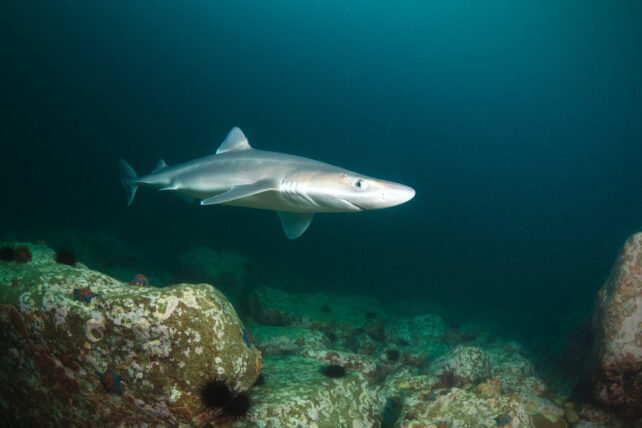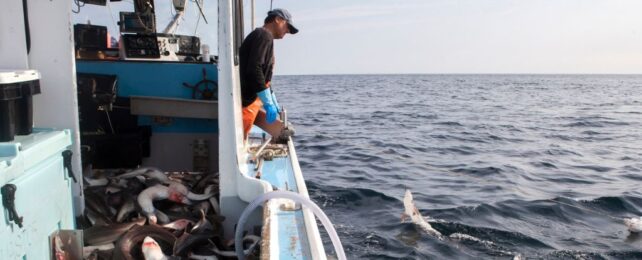Many sharks are being fished to the point of extinction, and yet one of the proposed solutions – sustainable shark fisheries – has largely failed to catch on.
A new paper on the sudden closure of the world's first eco-certified shark fishery explores why that might be.
In 2011, a Canadian fishery for the Pacific spiny dogfish (Squalus suckleyi) based in British Columbia became the first sustainable shark fishery certified by the Marine Stewardship Council (MSC).
The council aims to end overfishing by making it easier for consumers to "identify and choose certified sustainable, wild-caught seafood." However in 2014, after just a few years, the BC fishery quietly withdrew its certification.
Dogfish are some of the most abundant sharks of their kind, and experts say if their populations are carefully managed and controlled they can be responsibly harvested for food.
Today, global demand for this meat is only growing, and BC's dogfish population is thriving.
So why are fishers in BC now throwing the sharks back when they catch them? Today, 95 percent of the annual dogfish quota allotted to this fishery remains in the ocean.

Shark researcher David Shiffman, the marine ecologist, Charles Bangley, and the marine conservation biologist, Catherine MacDonald teamed up to find out what happened. They talked to locals and government officials on BC's Vancouver Island and read through media, government, non-profit, and scientific reports.
Their conclusion is that the fishery in BC collapsed from "a thousand cuts", not any one specific reason.
Around 2013, a 'blob' of exceedingly warm water hit the pacific northwest of North America, bringing great suffering to ocean life in the region.
Environmental advocacy campaigns at this time may have turned grocery shoppers off of buying shark, even if those products were eco-certified.
What's more, fisheries in BC employ individual fishing quotas that can be bought, sold, or leased. This puts small fishing businesses at a disadvantage compared to larger companies, which wish to maximize profit at all costs.
Dogfish is not the most expensive fish you can catch in the region. Shiffman and his colleagues say that probably played a role in the closure of BC's dogfish processing house.
And that seems to have been the last straw.
"With no processor and wholesaler to buy, process and redistribute dogfish, there was no point in fishermen landing them, even if market demand remained strong and supply was as high as ever," the researchers explain.
When dogfish are caught in BC, they are usually shipped overseas to places like South Korea, France, the United States of America, Singapore, Thailand, India, Kazakhstan, Belgium, North Korea, Greece, and Italy.
But shipping costs money, reducing profit margins and making it harder to compete with Atlantic-caught dogfish, which are much closer to Europe.
"Making something sustainable doesn't mean you have a market," one interviewer told Shiffman and his colleagues.
A former processor agreed: "If there was a market for it people would still be fishing … there's no market for it anymore."
But perhaps that's not true anymore. The market for eco-friendly foods is much more popular now than it was a decade ago.
An MSC representative that was interviewed told Shiffman and his colleagues that sustainability has become a powerful marketing tool. Especially when consumers begin to realize the scale of the problem we are facing. Each year, up to 73 million sharks are traded across international fishing markets, putting many species at risk of extinction.
Sustainable shark fisheries have been proposed as a possible solution to our insatiable appetite for shark, and evidence suggests they can and do exist. In fact, the largest shark fishery in the US today is one for spiny dogfish on the east coast that is eco-certified by MSC.
But on a global level, that's the exception, not the rule. Over 90 percent of shark catches were deemed biologically unsustainable in 2017.
The market for eco-friendly shark meat hasn't been fully realized yet, but that doesn't mean it never will be.
The study was published in Fish Biology.
